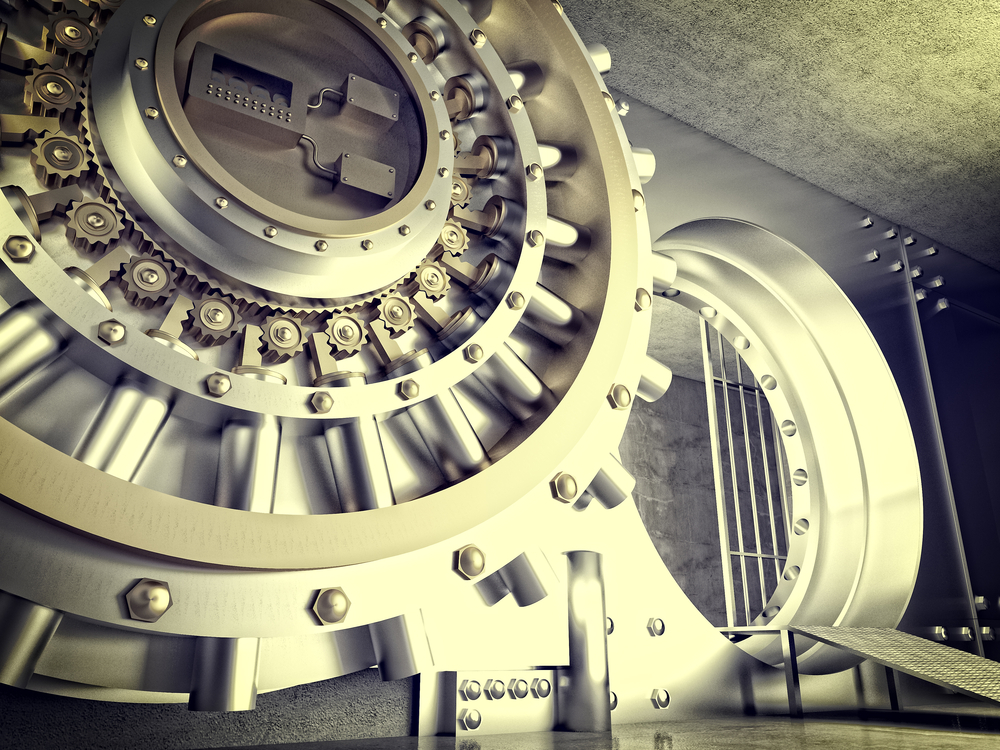I always liked the famous scene in the movie Jaws where the film’s hero, police Chief Brody, finally gets a close-up look at the size of his killer shark nemesis.
“We’re gonna need a bigger boat,” he says, incredulous at the size of the monster fish.
These days, we have a monetary nemesis called negative rates. It’s already a reality in Japan and the European Union.
But large banks, incredulous at being forced to store their digital cash at the European Central Bank (ECB) — and paying for the privilege — have a strategy to deal with this ongoing financial horror show, summed up as…
“We’re gonna need a bigger vault.”
Back in March, I noted how Germany’s Munich Re, one of the largest financial institutions in the world, threatened to load up on lots and lots of physical cash (and some gold) and stuff it into the vaults it controls.
Last month, another German banking giant, Commerzbank, let it be known that it too is likely to do the same if the dummkopfs at the ECB insist on maintaining negative rates.
And it’s not just those dour Deutschland bankers. Their counterparts in Japan are brewing their own revolt against negative rates.
Hara-kiri Monetary Policy
The Bank of Tokyo-Mitsubishi (BTMU) — one of the 10 largest banks in the world — recently announced an action that would have been unthinkable in normal times.
BTMU is part of an exclusive club of large banks and brokers that are the primary dealers of Japan’s sovereign debt. But in June, BTMU shocked everyone by threatening to drop its membership in the primary dealer group.
It’s a radical move in the tight-knit world of Japanese banking, where everyone is expected to support the government line. But even Japan’s conservative banking culture has its limits when it comes to negative rates.
Thanks to Japan’s radical Abenomics stimulus efforts, Japan’s central bank buys up most of the government-issued debt anyway. In 2013, the central bank owned less than 15% of Japan’s government bonds. Today, it’s more than 30% … and rising.
And with interest rates (and bond yields) in negative territory, who in their right mind (besides those deluded central bankers) would want to buy Japanese government debt anyway? For financial institutions like Bank of Tokyo-Mitsubishi, why bother with staffing a bond desk to begin with?
Safe-Deposit Shortage
Negative rates aren’t just spurring European banks to consider a cash-heavy, vault-stuffing strategy. Regular folks are doing it too.
At some banks in Germany, demand for safe-deposit box rentals is three times what it was just a handful of years ago. At others, 80% of all the deposit boxes are already leased out. In smaller branches, it’s tough to find a deposit box at all.
The CEO of EGF, a German company that manufactures safe-deposit boxes, told one publication that they’re selling 20,000 boxes a year to banks, “and demand is still rising.”
And what are people putting into those vault-stored safe-deposit boxes?
Being a Sovereign Society reader, you already know. It’s all the same stuff that Jeff Opdyke and Ted Bauman have been recommending for a long time — a ready stash of cash and gold.
Some might disagree as to whether it’s the right idea to store cash and gold inside a bank, rather than in a personal safe. But the point is, Europeans and their financial institutions — now yoked to the onerous burden of negative rates — are learning the hard way why such stores of wealth are so important to have close at hand.
Kind regards,
JL Yastine
Editorial Director
